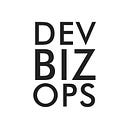Every Company is a Tech Company
What comes to mind when you think about Facebook, Apple, Microsoft, Google, and Amazon? Well, maybe you think they are great places to work. On the other hand, you might be inclined to think they are some sort of evil conglomerate called FAMGA.
Whatever your views, we can all agree that these are tech companies. The only outlier could be Amazon. Back in 1995 when it launched, people saw Amazon as a book seller. But Bezos was clear about his intentions even back then, he was building the next great tech company.
It is pretty easy to see that ambition today. Amazon does not just sell stuff online. They have the world’s biggest infrastructure as a service business. They infuse technology into all parts of their supply chain and logistics flow. Now they are making strides into AI.
So what about General Motors? They are just one of those old school auto companies, right? Well, some folks see a very different GM emerging, creating a $30 billion business from investments in self-driving and shared cars. It’s not just about chrome rims and leather bucket seats anymore.
What does this say about other industries? Let’s look at a few.
Banks? They are tech companies that move digital money around the globe.
Insurers? Tech companies employing data science for advanced modeling.
Food producers? Biotech and gene splicing techniques built by software.
Tech journalist Todd Hazelton wrote that the term “tech” in this day and age has become meaningless. This dramatic shift in thinking is impacting how companies brand themselves as tech-savvy and innovative. This is especially relevant as programming talent becomes more critical.
Some CEO’s are starting to get the point. Mary Barra of GM said this:
A car today has hundreds of millions of lines of code. We do see a shortage if we don’t address this…Every child needs to have these skills.
I have talked before about “software is eating the world”. Since 2011, the reality of this idea has accelerated as advances in AI, machine learning, and AR/VR start to become ingrained in our everyday lives. It is also shaping the DNA of businesses.
The traditional “Non-Tech” companies now need to present themselves as places where developers can thrive and innovate. If not, they risk losing out to tech startups that can move faster, tend to be viewed as more hip employment options, and provide more autonomy and opportunities for growth.
Can “Non-Tech” companies compete? Yes, but it means rethinking how they hire because the best talent is not actively searching for jobs. It means providing an environment and tools where developers can be productive since talented developers want to use tech and tools that enhance their skills. And most importantly, it means changing the culture so that developers are treated as partners in driving innovation.
This is exactly where DEVBIZOPS fits in. We can help with shaping the culture that can help attract talented engineers. We have methods to help developer teams collaboration more effectively and be more productive , and we can help enterprises connect with the external community of developers to help foster and accelerate innovation.
Do you see your company as an ideal place for attracting developers? What do you do to enable developers to do their best work and thrive?
Why does the Death Star have a trash compactor?
For those of you that want to geek out on Star Wars trivia…
We help IT leaders in enterprises solve the cultural challenges involved in digital transformation and move towards a community based culture that delivers innovation and customer value faster. Learn more about our work here.
